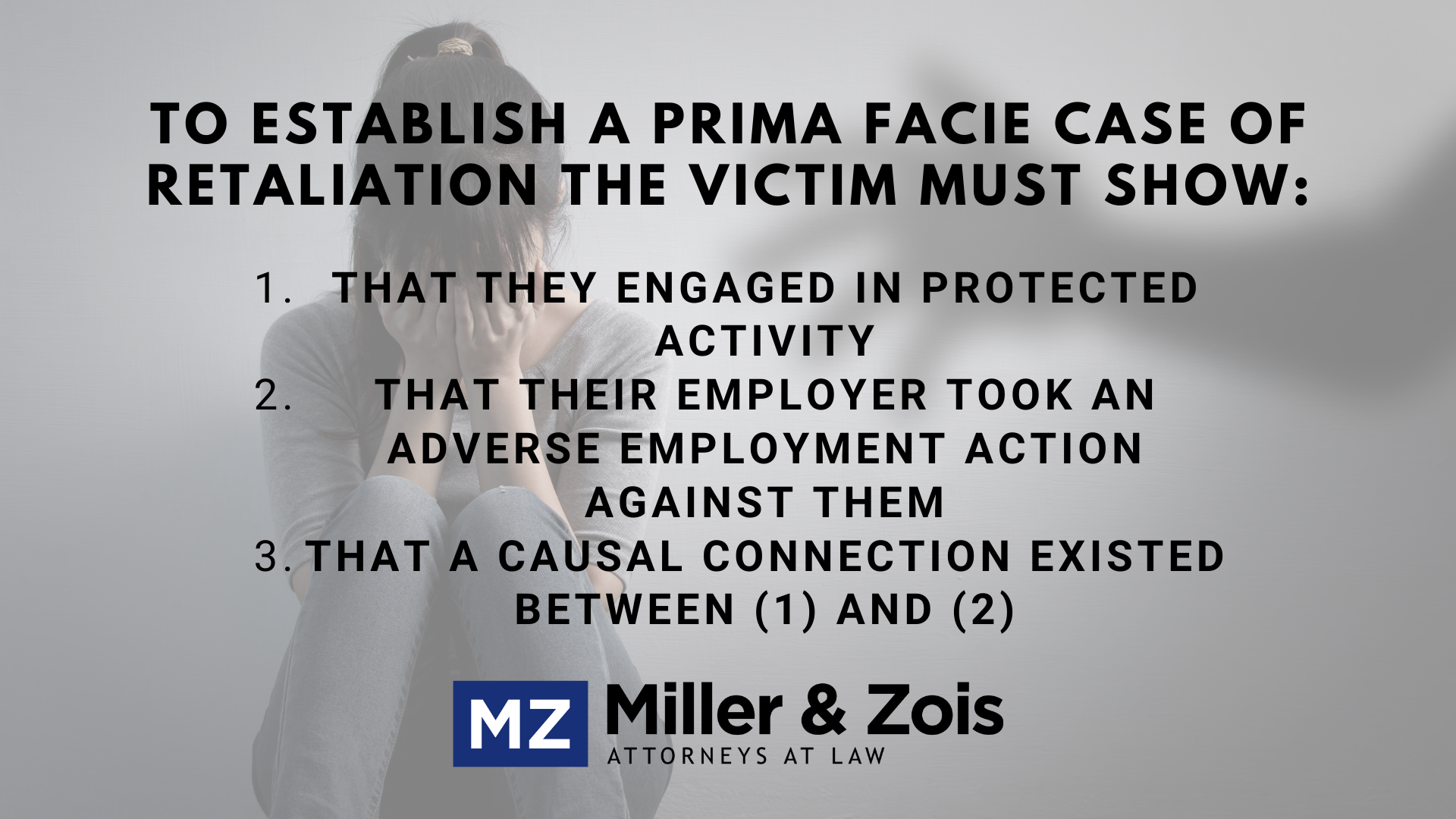The reason women do not report sexual harassment is their fear of retaliation from the harasser and her employer. This is particularly true when the harasser has a position of power within the organization.
Juries are made up mostly of people in the workplace. So they get it. Jurors often side with the victim in discrimination cases where there is evidence of retaliation for reporting sexual harassment and the organization did nothing to stop it.
There are two types of workplace harassment under federal law: sexual harassment and retaliatory harassment. This post focus on retaliation.
What Does Retaliation for Reporting a Sexual Harassment Claim Look Like?
There are lots of different ways that women who report sexual harassment find retaliation. Retaliation for sexual harassment can take many forms that stop short of firing.
The most common form of sexual harassment retaliation is mistreatment other than firing. The boss is accused of sexual harassment. People either like the boss or want to curry favor with him. The result is that people stop talking to her, stop including her in professional and social aspects of employment that we all value.
The second most common form of retaliation for sexual harassment is the loss of economic and promotional opportunities. What often happens is that the employer starts looking for pretexts to find fault with the employee that was sexually harassed, raising the bar for what is required of her beyond what it was in the past or what it is for other employees. If you have ever supervised anyone, you get it. You can always fight fault with employees and you can always elevate the significance of mistakes if you are looking to railroad someone.
Where Is the Law on Sexual Harassment Retaliation?
Section 704 of Title VII specifically forbids employers from taking adverse employment actions against employees who oppose report discrimination in the workplace.
How Do You Establish a Hostile Work Environment Because of a Sexual Harassment Report?
To prove a sexual harassment victim faced a hostile work environment, she must show that the actions taken against her were sufficiently “severe or pervasive” to the point of creating an abusive environment.
Is this a fine line? It is a very fine line.
In the real world, sexual harassment and retaliation often travel together and combine to form one hostile work environment. Often the complaints of sexual harassment lead to retaliation for the complaint… and more sexual harassment.
How Do You Prove a Retaliation for Sexual Harassment Claim?
An employee can establish a case of retaliation if she has engaged in protected activity, suffered an adverse employment action, and can prove protected activity and the adverse employment action are connected. To establish a prima facie case of retaliation, the victim must show (1) that she engaged in protected activity; (2) that her employer took an adverse employment action against her; and (3) that a causal connection existed between (1) and (2). In other words, the “protected activity and the negative employment actions are not completely unrelated.”
There is rarely direct evidence of retaliation. You do not see a lot of smoking gun “I fired her because she reported sexual harassment” emails are out there. But an inference of retaliation can properly be drawn from suspicious timing, ambiguous statements oral or written, behavior or comments, and other bits and pieces.
Moreover, the Fourth Circuit, which covers Maryland, has found that to prove retaliation “very little evidence of a causal connection is required to establish a prima facie case, and mere temporal proximity is sufficient to demonstrate causality.”
After this initial showing is made, the burden of proof goes to the employer who must articulate a nondiscriminatory reason for the adverse employment action that was taken. Assuming the employer can do this, the burden shifts yet again to the victim to prove that the employer’s reason was a mere pretext for discrimination.
What Is an Adverse Employment Action?
A Maryland federal court hearing a sexual harassment case would define adverse employment action as adverse employment actions as ultimate employment decisions which would include hiring, firing, demotion, promotion, granting leave, and determining compensation.
Can I Get Punitive Damages for Sexual Harassment and Retaliation?
The Fourth Circuit has ruled that certain questions should be weighted to determine if an employer’s actions justify punitive damages:
- Did the employer discriminate in the face of a perceived risk that the decision would violate federal law?
- Was the discrimination a decision-maker a principal or did he or she serve the employer in a managerial capacity?
- Did the decision-maker act within the scope of his employment in making the challenged decision?, and
- Did the employer fail to engage in good-faith efforts to comply with the law?
 Maryland Injury Law Center
Maryland Injury Law Center


